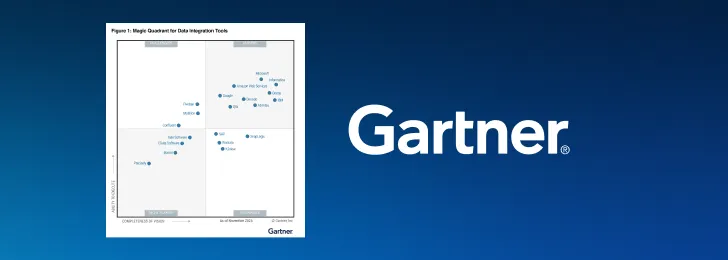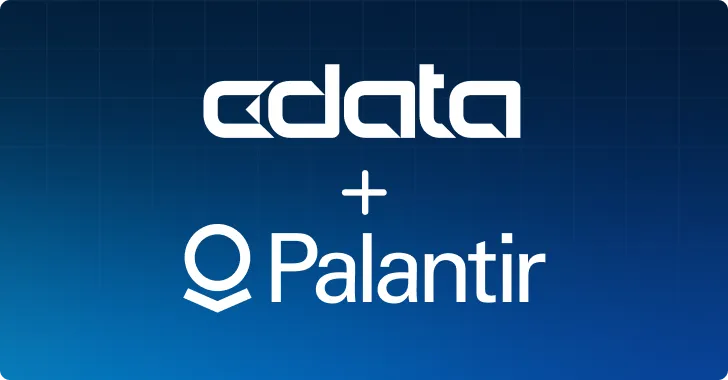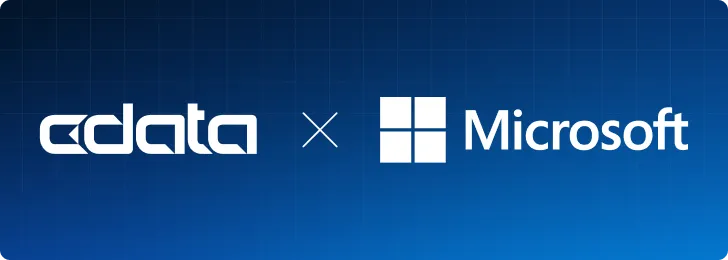In today's increasingly data-driven landscape, effective data governance is paramount for organizations looking to ensure data integrity, security, and compliance. This article explains the concept of data governance and highlights some of the most widely used solutions, including their benefits, standout features, and intended use cases.
What are data governance tools? How they work
Data governance is the process of establishing a management framework, policies, procedures, and roles/responsibilities in an organization to ensure that data is managed effectively, securely, and in alignment with business objectives. Data governance tools are software solutions designed to help organizations architect an approach to data governance that meets their unique business needs.
Data governance tools streamline governance efforts, reduce manual overhead, and mitigate risks associated with data misuse, unauthorized access, and regulatory non-compliance.
These tools work by integrating with existing data systems and repositories within an organization, allowing users to define and enforce policies, monitor data activities, and generate insights into data usage and lineage. Through these mechanisms, data governance tools empower organizations to maintain data integrity, enhance decision-making, and drive business value from their data assets.
4 benefits of data governance tools
The frameworks, policies, and procedures that data governance tools help you create lead to several benefits for your business, including:
- Improving data accuracy: Data governance tools help organizations maintain high levels of data accuracy by establishing standards, rules, and processes for data entry, validation, and maintenance. By enforcing data quality controls and automated validation checks, these tools reduce the occurrence of errors and inconsistencies in data sets, empowering organizations to make informed decisions based on trustworthy information.
- Facilitating data collaboration and sharing: Data governance tools facilitate collaboration and knowledge sharing among stakeholders by providing centralized repositories for data assets, metadata, and governance policies. By promoting transparency and visibility into data assets and their usage, these tools encourage collaboration across departments and enable cross-functional teams to access and leverage data for their specific needs.
- Mitigating risks and ensuring data security: Data governance tools allow organizations to implement robust access controls and permissions, ensuring that only authorized users have access to specific data sets based on their roles and responsibilities. By defining and enforcing access policies, these tools minimize the risk of unauthorized data access or breaches, safeguarding sensitive information from misuse or theft.
- Ensuring compliance: Data governance tools assist organizations in achieving and maintaining regulatory compliance by enforcing data governance policies and standards that align with industry regulations and requirements such as GDPR, HIPAA, or PCI-DSS. These tools provide capabilities for data lineage tracking, audit trail generation, and regulatory reporting, enabling organizations to demonstrate compliance with data protection and privacy laws.
8 most used data governance tools in 2024
- Ataccama ONE: Ataccama ONE is a modular data governance platform known for its comprehensive data management and governance capabilities. It allows you to create workflows for key data management tasks such as data discovery and profiling, aiding professionals across various data-centric roles. It is highly customizable, uses a low-code to no-code interface, and offers a variety of automation features. It is well suited to organizations that require a heavily customized approach to data governance.
- Collibra Data Governance: Collibra Data Governance emphasizes handling complex use cases and covers all aspects of data governance in a centralized hub. Its key features include stewardship management, reference data management, and a business glossary, which provides clear definitions for relevant terminology. Collibra is a good fit for organizations with complex internal structures.
- IBM Data Governance: IBM Data Governance places regulatory compliance at the forefront. It ensures data confidentiality and integrity across structured and unstructured data. It enhances governance processes with AI-driven standardization rules, metrics, and policy enforcement. Users can also automate data security by dynamically detecting PII. IBM Data Governance is well suited to organizations working in industries that are heavily impacted by regulations.
- erwin Data Intelligence by Quest: erwin Data Intelligence by Quest is tailored to organizations looking to provide visibility into their data assets. Its automation and metadata modeling capabilities streamline metadata aggregation and visualization, allowing for easier analysis of key data points across teams.
- Atlan: Atlan specializes in connecting data assets to relevant context through data classification and column-level data lineage. It also provides integrations with BI dashboards, as well as platforms like Slack and Jira, so that context follows data wherever it is accessed. If you need to embed more context into your data, Atlan is a good fit for your organization.
- Informatica Data Governance: Informatica Data Governance fuels data intelligence with a unified interface for data governance and cataloging. It features AI-powered task automation, scalable, modular data services, and the ability to link metadata with business context. It is suited for organizations that want clear visibility into data lineage and powerful metadata management.
- Alation: Alation provides clear visibility into the data governed by policies and the stewards who govern it using its Data Governance Policy Center. Additionally, Alation Data Governance Workflows offer a no-code interface for creating change processes. It is best for organizations that value powerful automation for data governance workflows.
- SAP Master Data Governance: SAP Master Data Governance excels at data management. It provides a centralized interface for data governance that lets you define and monitor business rules, as well as assigning ownership of various data attributes to different teams. It is best for organizations that need powerful policy management capabilities.
How CData supports data governance
With robust access controls, easy auditing for accountability, and pass-through user authentication for enhanced operational efficiency, CData Connect AI is designed to help organizations streamline data governance. With Connect AI, businesses get centralized access and management of their diverse cloud data sources. Try a free trial of Connect AI to see the data governance features in action.
Try CData Connect AI
Get a free trial of CData Connect AI to start upleveling your data strategy today.





